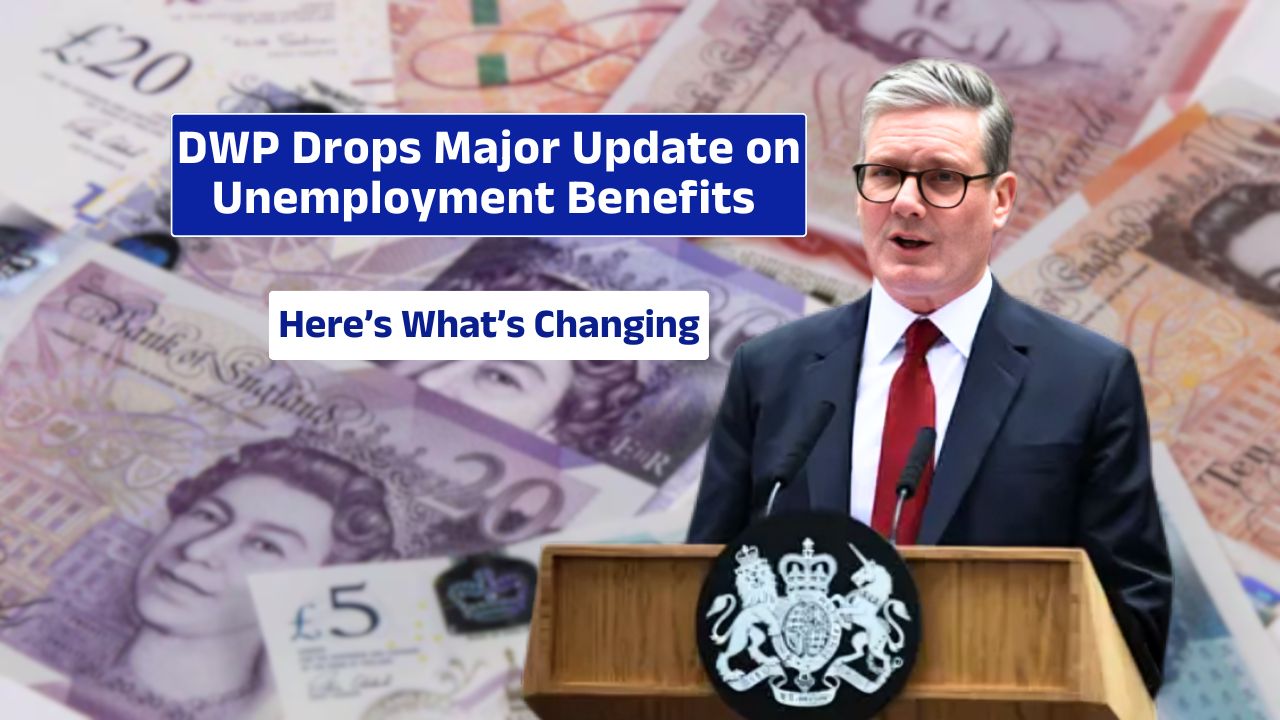Big changes are coming to unemployment benefits in the UK—and they’re not small tweaks. Starting in 2026, the Department for Work and Pensions (DWP) is rolling out one of the most significant benefit reforms in decades.
This includes cuts to Universal Credit, new eligibility rules for Personal Independence Payment (PIP), the end of Jobseeker’s Allowance (JSA) and ESA, and the launch of a new Unemployment Insurance scheme.
If you’re currently on benefits—or expect to be—it’s crucial to know what’s coming, when it’s happening, and what steps you can take to prepare.
Changes
Here’s a quick breakdown of the headline changes announced by the DWP:
| Key Changes | Details |
|---|---|
| PIP Eligibility Rule | Must now score 4 points in one daily task (from Nov 2026) |
| Universal Credit | Health element drops from £97 to £50/week (from April 2026) |
| Youth Access | Delayed until age 22 for health element (from 2027) |
| WCA Replaced | Work Capability Assessment scrapped in 2028 |
| New Insurance Scheme | Contribution-based Unemployment Insurance begins in 2028 |
| Expected Government Savings | £6 billion annually by 2030 |
These reforms are aimed at cutting costs and boosting workforce participation—but they come with risks, especially for vulnerable claimants.
Reasons
So why is this overhaul happening?
The DWP says it’s responding to rising welfare costs, fraud, and the need for a modern, efficient system. In 2024, welfare spending hit nearly £230 billion. The government argues that changes will better target help, reduce misuse, and reward work.
But not everyone agrees. Advocacy groups worry these changes could push the most vulnerable further into hardship—especially those with complex or invisible disabilities.
Criteria
One of the biggest rule changes is to PIP. From November 2026, to qualify for the daily living component, you’ll need to score at least four points in a single task—like cooking or managing meds.
Previously, you could qualify with eight points total across multiple tasks. This change may disqualify people with a range of milder but cumulative impairments. For example, someone with moderate difficulties across several tasks could lose support entirely under the new model.
Reductions
Universal Credit is also taking a hit. Starting April 2026, the health-related element will be cut from £97 to £50 per week for new claimants. Current recipients will see their amount frozen—meaning inflation will slowly reduce its value over time.
This aims to save billions but could result in real hardship for people with long-term illnesses who rely heavily on this component.
Youth
Another key policy shift: from 2027, people under 22 won’t qualify for the health-related element of Universal Credit unless they meet exceptional criteria.
The government says this encourages young people to work or study. Critics argue it punishes those with serious health conditions early in life.
Replacement
Perhaps the most radical change is the scrapping of the Work Capability Assessment (WCA) by 2028. Instead, PIP assessments will determine whether someone is too ill to work and qualifies for extra Universal Credit support.
The move is designed to cut red tape, but charities warn PIP wasn’t meant to assess work capacity—and may miss key mental health and fluctuating conditions.
Insurance
Replacing JSA and ESA is a new Unemployment Insurance scheme, starting in 2028. It will offer short-term support based on National Insurance contributions.
Key points:
- No health assessments
- Time-limited payments
- Must prove active job searching
- Focused on those recently unemployed
While helpful to some, this system may leave long-term unemployed people and those without NI history without support.
Impact
Who’s most affected?
- Disabled people with complex, moderate impairments
- Young adults under 22 with health challenges
- People who lose work but haven’t built enough NI contributions
- Those on full ESA or Universal Credit health support
Analysts estimate around 350,000 people may lose eligibility or see reduced support due to these changes.
Timeline
Here’s when the changes kick in:
| Change | Date |
|---|---|
| UC Health Element Cut | April 2026 |
| New PIP Scoring Rule | Nov 2026 |
| Youth Restriction (Under 22s) | 2027 |
| WCA Abolished, Insurance Starts | 2028 |
Consultation
You can still have your say. The DWP has opened a public consultation until 30 June 2025.
How to join:
- Visit gov.uk and search for “DWP consultation”
- Submit feedback online, by post, or email
- Join forums or town halls in your area
Your feedback could help shape the final outcome.
Action
Here’s what to do now:
- Check your eligibility – Use Turn2us or contact Citizens Advice.
- Prepare documentation – Keep medical records and care letters up to date.
- Stay informed – Follow updates through Scope, Citizens Advice, or Disability Rights UK.
- Get involved – Join campaigns to support fairer benefits and speak out against unjust reforms.
This is one of the biggest changes to UK welfare in a generation. If it affects you or someone you care about, don’t wait. Start planning now and seek expert support if needed.
FAQs
When do the reforms start?
Changes begin April 2026, with full rollout by 2028.
What is replacing Jobseeker’s Allowance?
A new Unemployment Insurance scheme will launch in 2028.
How does the new PIP rule work?
You must score 4 points in one activity to qualify.
Can young people still claim UC health support?
Not until age 22 starting in 2027, unless exceptions apply.
How can I give feedback on the changes?
Join the public consultation on gov.uk until 30 June 2025.




















